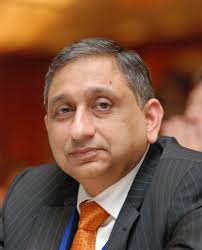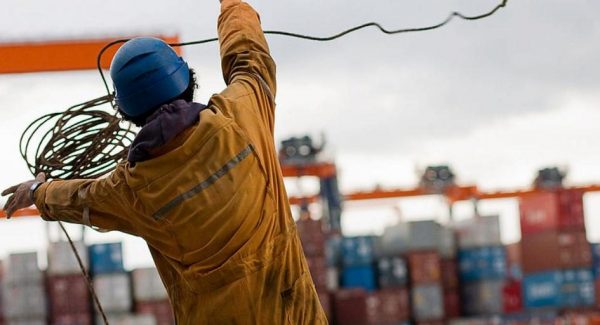In the following article, Capt Pradeep Chawla, Managing Director, QHSE & Training, Anglo-Eastern Univan Group Company, discusses the role of certificate of competency in safety training. He further discusses the relationship of STCW competency standards and expectations of the industry. He also delves into the role of shipboard and organizational culture in the prevention of accidents.
We all know that the reason for doing safety training is to prevent harm to people, environment, property and to prevent loss of profits.
The regulatory framework is fairly well established.
We have the STCW convention; based on which each country is expected to make their national training standards. We have a ‘white list’ of countries who have been judged by IMO appointed ‘competent persons’, to have met the requirements of complying with STCW. Each country has a system of quality assurance for their training institutions. To assist the teachers around the world and to achieve similar training standards worldwide, IMO publishes Model Courses for various subjects.
The regulatory framework has also given powers to port states to verify that the seafarers visiting their ports are competent.
It is a framework that the maritime industry should be proud of, as there are few industries that have internationally agreed standards of competence. Just compare worker safety in USA and Bangladesh.
In theory, all seafarers who have obtained their certification from any whitelisted country are competent to operate a ship.
So, why are we discussing safety training in so many ‘manning and training’ conferences?
I guess, because accidents continue to happen and while the total accidents in the maritime industry have significantly reduced in the past 30 years, we all want to reach a goal of zero injuries, zero pollution and zero losses to property or profits.
In order to continuously improve, we then have to question whether the certificate of competency is a guarantee of competence and is it sufficient to prevent accidents.
Any ‘insider’ in the maritime manning and training industry will agree that the certificate of competency is not enough.
The reasons are simple enough. While the efforts by IMO are well intentioned and commendable, the reality is that the training standards in different countries are not the same. The reasons for the variance are many.
- No government or shipowner support for training institutions.
- Big differential in teacher’s salaries and shipboard salaries.
- Disconnect between shipping companies and colleges.
- Poor markets and many shipowner’s expecting someone other than themselves to pay for training.
A detailed analysis of the STCW competences will also reveal that STCW mainly focusses on knowledge and skill required for the competence.
Shipowners and ship managers complain that the maritime education and training institutes do not teach the ‘practical’ aspects of the job i.e. it’s not particularly “hands-on”.
The reasons for this difference is that while educators do their best to ensure that the seafarer is taught the knowledge and skills for the STCW competence; however what the industry is looking for is the ability to do the job successfully and efficiently to prevent an accident. The industry is looking for competence in the workplace.
Competency as expected by the industry consists of knowledge, skill and attitude. A college can teach knowledge and skill but attitude of the seafarer while doing a task is affected by various factors.
In case of an accident, the industry quite often alleges that the seafarer was somehow “incompetent”.
PSC and charterer’s inspections like SIRE / CDI attempt to check competence during their visits. Generally, judgment of competence is left to the company; who in turn rely on the Master, Chief Engineer and the ship superintendent to comment on each seafarer in the ‘Appraisal Systems’.
The industry is slowly moving from appraisal systems towards a more structured ‘Competency Management System’.
A ‘Competency management System’ basically consists of defining critical competencies for each rank and laying down the guidelines and assessement method for each competency. Usually, the assessment is carried out by the Master and Chief Engineer by observing the seafarer performing the task on board.
At this stage very few companies in the industry have implemented a formal Competency Management System.
DNV Sea Skill tried selling CMS as a ‘product’ but did not get much of a ‘buy in’ from the industry. The reasons were : the administrative burden, lack of visible and tangible commercial benefits, and the lack of willingness to accept the expected costs.
Intertanko is now working on a revised version of its ‘TOTS’ competency standards and hopefully the industry (including charterers) will support it.
Will a formal competency management system improve performance and prevent accidents?
I believe it will bring about some improvements if companies believe in it and make genuine efforts to judge the competencies objectively.
One may argue that as seen at times in the case of cadet record books, Masters and Chief engineers may sign off a seafarer as being competent in the workplace without adequate and strict verification.
But what about accidents that happen on ships manned by ‘competent crew’?
After an accident, investigations by flag / port states often criticize the company for a lack of ‘safety culture’ on board. This is often alleged if the knowledge or the experience of the seafarer is not being doubted.
What exactly is this ‘Safety Culture’?
Well, there is no internationally agreed definition for ‘Safety Culture’ in the maritime industry or in other industries. Various definitions are used in different countries and within one country.
For the maritime industry, perhaps one appropriate one is the UK HSE definition, which states:
The safety culture of an organization is the product of individual and group values, attitudes, perceptions, competencies, and patterns of behaviour that determine the commitment to, and the style and proficiency of, an organization’s health and safety management. Organizations with a positive safety culture are characterised by communications founded on mutual trust, by shared perceptions of the importance of safety and by confidence in the efficacy of preventive measures.
Not exactly an easy one to get common understanding in 1.5m seafarers!
Safety culture on board a ship is more complex than in other industries because there is a change of team (crew) members onboard a ship on a continuous basis.
One of the four management level officers could be changing every month.
If we further take multi-national crew on board, the complexity of the safety culture increases dramatically considering language, communications barriers and other differences amongst the nationalities employed.
The ship-port interface is also global unlike land based organizations.
Safety culture on board is therefore like a constantly changing cloud.
This cloud is very easily affected by the instructions and directions given by the office.
If safety training has to be effective in preventing accidents, the role of the organizational culture must be clearly understood and accepted.
Accidents in general are not caused due to lack of knowledge or lack of skill. If you read the investigation reports, in most major accidents, the crew was competent and were experienced – for example EXXON, Valdez, Braer, Maersk Svendborg, etc
Accident reports will often identify issues like complacency, lack of motivation, taking shortcuts etc.
The underlying reasons for these human factors are often to be found in the organizational culture. The ‘Safety Culture’ on board is a subset of the organizational culture.
Consider this model of human performance that is based on my ideas, after spending over 40 years in the industry.
Let us discuss a few examples:
Pay & Benefits:
Due to shortage of officers, a new Master is taken by the company at a higher wage than existing Masters in the fleet. How would it affect the morale of the Masters who are sailing in the company for a long time?
Respect given:
A Senior Master or Chief Engineer is reprimanded for an initiative taken by the officer with the best intentions for the company, which failed for some reason. Would the Master take initiatives in the future?
Empathy:
A seafarer is not relieved in time to reach home to look after an ailing child.
In situations such as given in the examples above, the motivation of the seafarer drops.
If the motivation of the management level officers is low, supervision and monitoring by the management team reduces and the general attitude on board can become complacent very easily and quickly.
In such circumstances, safety is likely to be compromised.
Seafarers get the brunt of the criticism in case of accidents. However, if the causal analysis is deep enough, it is seen (in many cases) that the poor organizational culture, rather than the safety training of the seafarer is the root cause of the accident.
Effectiveness of the safety training in prevention of accidents is thus very dependent on the organizational culture.
The main issue is not the variance in safety training in different countries. STCW is slowly getting there.
Main improvement required is in the offices that direct and control the safety culture on board.
QHSE / ISM systems are the framework. Taking care of the human element is the key to reduction in accidents.
The focus must remain on the individual seafarer and his inter-relation with the organizational culture of the company.
Written by Capt. Pradeep Chawla
Managing Director, QHSE & Training, Anglo-Eastern Univan Group Company
The views presented hereabove are only those of the author and not necessarily those of SAFETY4SEA and are for information sharing and discussion purposes only.
 Capt. Pradeep Chawla joined Sea, 1974 as Deck Cadet, he sailed on various ship types and attained the rank of Master in 1986. He started in a shore job in 1992. Capt. Chawla is presently working as Managing Director, QHSE and Training for Anglo-Eastern Group. Anglo-Eastern Group manages 450 ships. In 1992 he authored and published a book on’Safety at Sea’ in Hindi and Tagalog. He is serving as an invited member in the Shipping Consultative Committee to the Hong Kong Government and chairs the Nautical Sub Committee of the Hong Kong Shipowners Association. He is an Ex-Chairman of Global MET Association, and Ex-Vice-President and Council member of Nautical Institute, UK and has worked as a “Competent Person” for IMO.
Capt. Pradeep Chawla joined Sea, 1974 as Deck Cadet, he sailed on various ship types and attained the rank of Master in 1986. He started in a shore job in 1992. Capt. Chawla is presently working as Managing Director, QHSE and Training for Anglo-Eastern Group. Anglo-Eastern Group manages 450 ships. In 1992 he authored and published a book on’Safety at Sea’ in Hindi and Tagalog. He is serving as an invited member in the Shipping Consultative Committee to the Hong Kong Government and chairs the Nautical Sub Committee of the Hong Kong Shipowners Association. He is an Ex-Chairman of Global MET Association, and Ex-Vice-President and Council member of Nautical Institute, UK and has worked as a “Competent Person” for IMO.































































